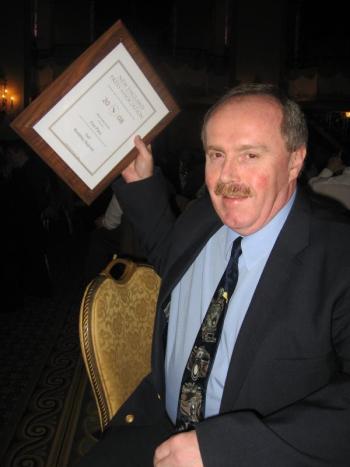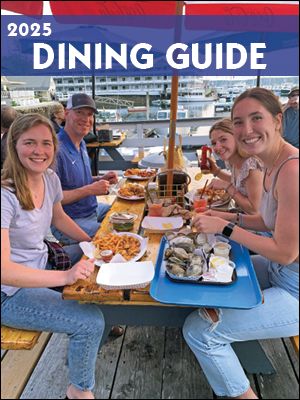A sigh, and then I fix it
It was suggested that I continue my Cheers and Jeers column, which I resurrected last week, each week. It is a good suggestion, but I think it may get a bit stale after a while. I will bring it to the forefront more often than once a year.
This week I want to point out a few editing “situations” I deal with on a regular basis. As the headline says, when I come across one of these situations, I let out a sigh and fix it. But, perhaps, by outlining some things here, I can get a few contributors to do things the correct way.
First, it's the Boothbay region; don't capitalize region unless it is part of a name. The same goes for the Boothbay peninsula.
Next, don't double space between sentences. Yes, I too was taught to double space when learning to type. But now, word processing programs make the copy look "too spaced out" if you double space. So, with a bit of humor, "Cut it (the space) out!"
Perhaps the situation I run into most and change is a.m. and p.m. The Associated Press Stylebook, which is our guide, stresses the use of a.m. and p.m. after each stated time. It's not AM, PM, A.M., P.M., am, pm – lowercase "a" and lowercase "p" – followed by the lowercase "m" – with a period after each of those letters.
Dates: The AP Stylebook has us abbreviating Aug., Sept., Oct., Nov., Dec., Jan. and Feb. when used with a specific date. March, April, May, June and July are spelled out. And while on the subject of dates – I think it's a military "thing" – please don't use the day before the month, for example, "15 September." In this case, I have to change the order and abbreviate the month.
Now on to ALL CAPS ... no, no, no, no, no. I try to catch them all, especially in the letters to the editor where the writer tries to emphasize a word or words. Although the AP Stylebook states you shouldn't italicize any words in copy, I do sometimes use italics to replace the all caps words. Maybe I will give up that habit.
Lastly – this is not the end of the editing situations; I will have more to express in the future – it is "it's" for it is or it has and it is "its" when, according to the dictionary, "of or relating to it or itself especially as possessor, agent, or object of an action." For example, its eyes, its mouth, its ears, etc.
Thanks for reading. This column is done and it's ready for editing. Please review its contents before submitting your next piece for the newspaper.
Event Date
Address
United States





























